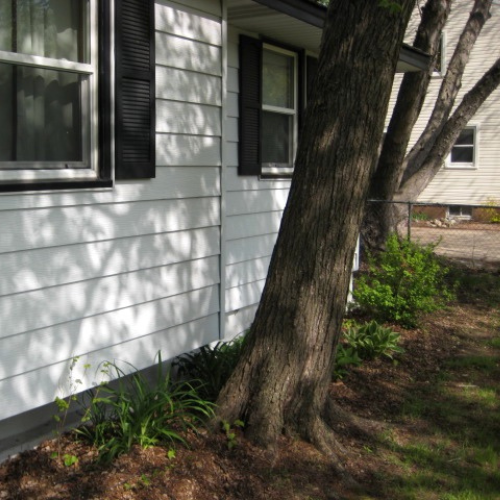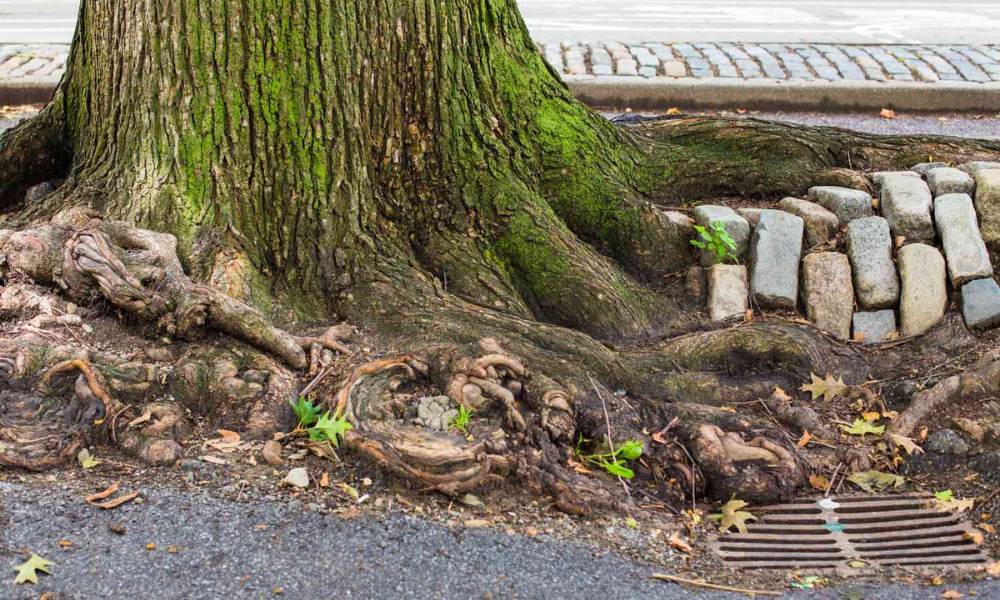In many cases, tree roots grow into and damage sewer lines. When this happens, the homeowner is left with a few options: they can try to fix the line themselves, call a plumber, or hire a professional to remove the tree. Each option has its own set of pros and cons, so it’s important to weigh all of your options before making a decision. Trying to fix the line yourself can be risky and might not work, while calling a plumber can be costly. Hiring a professional to remove the tree is often the most expensive option, but it also offers the best results. So, which option is right for you? Keep reading to find out!
Understand Visible Roots
Trees are a vital part of the ecosystem. They help to clean the air, provide habitat for wildlife, and prevent soil erosion. However, trees can also cause problems for homeowners. One common issue is visible tree roots. Roots are necessary for a tree’s survival, but they can also damage sidewalks, driveways, and foundation walls. In some cases, tree roots can even cause failures in septic tanks and sewer lines.
Homeowners have a few options when it comes to dealing with visible tree roots.
- One is to simply ignore them and hope that they don’t cause any damage.
- Another is to have the tree removed. This is usually only necessary if the roots are causing serious harm to the property.
- Finally, homeowners can choose to have the roots trimmed back or excavated. This can be costly, but it may be the best option for preventing damage to the home.
Identify Any Concern
 One of the most important things a homeowner can do to ensure the health of their trees is to identify any concerns with the roots as soon as possible. While tree roots are essential for anchoring the tree and providing nutrients, they can also cause problems if they become damaged or overgrown. One telltale sign of a root problem is a tree that is leaning. This can be caused by a number of factors, including damage to the roots, soil erosion, or an imbalance in the root system.
One of the most important things a homeowner can do to ensure the health of their trees is to identify any concerns with the roots as soon as possible. While tree roots are essential for anchoring the tree and providing nutrients, they can also cause problems if they become damaged or overgrown. One telltale sign of a root problem is a tree that is leaning. This can be caused by a number of factors, including damage to the roots, soil erosion, or an imbalance in the root system.
If you notice your tree leaning, it’s important to have a certified arborist assess the situation and determine the best course of action. In some cases, the tree may need to be removed; in others, support structures can be put in place to stabilize the tree. No matter what, it’s important to act quickly when you identify a root problem, as this can help prevent further damage to your property.
Avoid Costly Mistakes
Homeowners have a few options when it comes to tree roots and avoiding costly mistakes.
- One option is to have the tree removed. This can be done by a tree service company or the homeowner can do it themselves. If the tree is small enough, the roots can be dug up and removed with a shovel. The stump can then be ground down and the area filled in with soil.
- Another option is to leave the tree in place and cut the roots that are causing problems. This can be done with a root saw or an electric root cutter. The roots can also be chemically treated with a root killer. This option will kill the roots and prevent them from growing back.
- The third option is to install a root barrier around the tree. This will block the roots from growing into problem areas. Root barriers can be made of plastic, metal, or concrete. They can be installed by a landscaper or homeowners can do it themselves.
Which option is best depends on the situation and the preferences of the homeowner. tree removal companies, most often, have experience dealing with different types of trees and their removal. They will also have the proper equipment for safely removing a tree. If the homeowner decides to remove the tree themselves, they need to be aware of power lines, buildings, and other objects that could be damaged during the removal process. Homeowners should also have a plan for disposing of the tree once it has been removed.
Protect Other Features
Many homeowners are unaware of the damage that tree roots can cause to their property. Left unchecked, tree roots can damage walkways, driveways, and even the foundation of your home. Thankfully, there are a few things you can do to protect your property from tree roots.
- First, you can regularly inspect the roots of trees on your property and trim any that are growing too close to walkways or other features.
- You can also install root barriers made from concrete or metal around vulnerable areas.
- Finally, make sure to keep an eye on the overall health of your trees. Healthy trees are less likely to have problems with their roots, so consider investing in a professional tree care service.
By taking these steps, you can help ensure that your property is safe from tree root damage.
If you have trees on your property, it’s important to take measures to protect their roots from damage. Otherwise, the roots can become damaged and die, causing the tree to become unstable and potentially fall over.
There are several things you can do to protect your tree roots:
- *Mulch: Spread a layer of mulch around the base of the tree. This will help to protect the roots from damage caused by lawn mowers or other heavy equipment.
- *Fertilize: Fertilizing your trees will help them to grow strong roots that are less likely to be damaged.
- *Water: Proper watering is essential for tree health. Make sure to water your trees regularly, especially during periods of drought.
By taking these steps, you can help to ensure that your tree roots are protected from damage.
Identify the Problem
A tree’s roots are its most important organs. They are responsible for anchoring the tree in the ground, absorbing water and minerals, and storing carbohydrates. While tree roots are essential for a tree’s health, they can also cause problems for homeowners. roots can damage sidewalks, driveways, and foundations; block sewer lines; and break underground pipes. If you have problems with tree roots on your property, there are a few options to consider.
- First, try to Identify the Problem. Are the roots causing damage to your concrete walkway? Are they growing into your sewer line? Once you’ve identified the problem, you can take steps to mitigate it. For example, if the roots are damaging your sidewalk, you might consider installing root barriers. If the roots are growing into your sewer line, you might need to have the line replaced or repaired. Whatever the solution, it’s important to Identify the Problem before taking any action.
- Second, consider uprooting the tree. This is often not an option for large trees, but it might be something to consider if the tree is small and its roots are causing extensive damage. If you decide to remove the tree, be sure to have it done by a qualified arborist so that the job is done safely and correctly.
- Finally, try chemical root killers. These products contain herbicides that will kill tree roots without harming other plants or animals. They can be effective at killing small trees or shrubs, but they might not be strong enough to kill large trees. If you decide to use chemical root killers, be sure to follow the directions carefully and only use them as a last resort.
Repair the Yard
Repairing the yard when tree roots have caused damage can be a challenging task. Homeowners have several different options available to them, and the best option will vary depending on the extent of the damage. For small areas of damage, simply replanting grass seed or laying down sod may be sufficient. More extensive damage may require leveling and re-grading the affected area. In some cases, tree roots can also cause cracks in sidewalks or driveways.
These cracks can be repaired by filling them with concrete or asphalt patching material. If tree roots have damaged the foundation of a home, it is important to consult with a professional before taking any corrective action. Repairing foundation damage is a complex task that should only be attempted by experienced professionals.
Conclusion
If you have a tree on your property that is causing problems with the foundation or other underground infrastructure, there are a few things you can do.
- You could remove the tree yourself, but this can be difficult and dangerous.
- You could also hire a professional to take care of it for you- they will likely use heavy machinery to dig up the roots, which may damage your driveway or sidewalk in the process.
- A third option is to call an arborist to assess the situation and give you advice about how to deal with the problem without removing the tree.
Whatever route you decide to go, make sure you weigh all of your options and talk to professionals before taking any action. Have you had to deal with a troublesome tree root? Let us know in the comments below!
References:
What to Do When Tree Roots Encroach on Your Home
Tree Root Systems: Learn About Problem Tree Roots
When Trees Attack: How Tree Roots Can Damage Your Foundation


